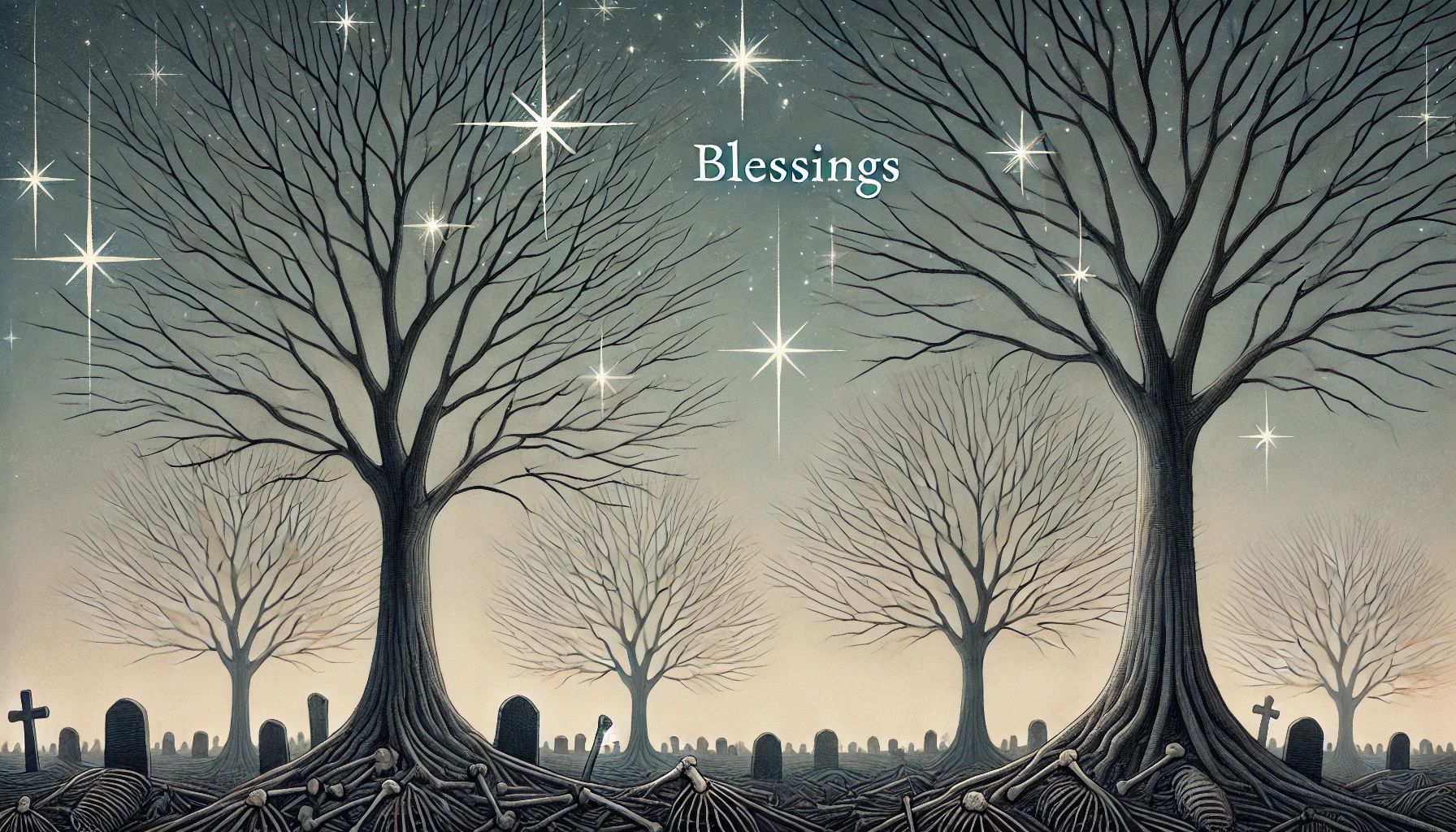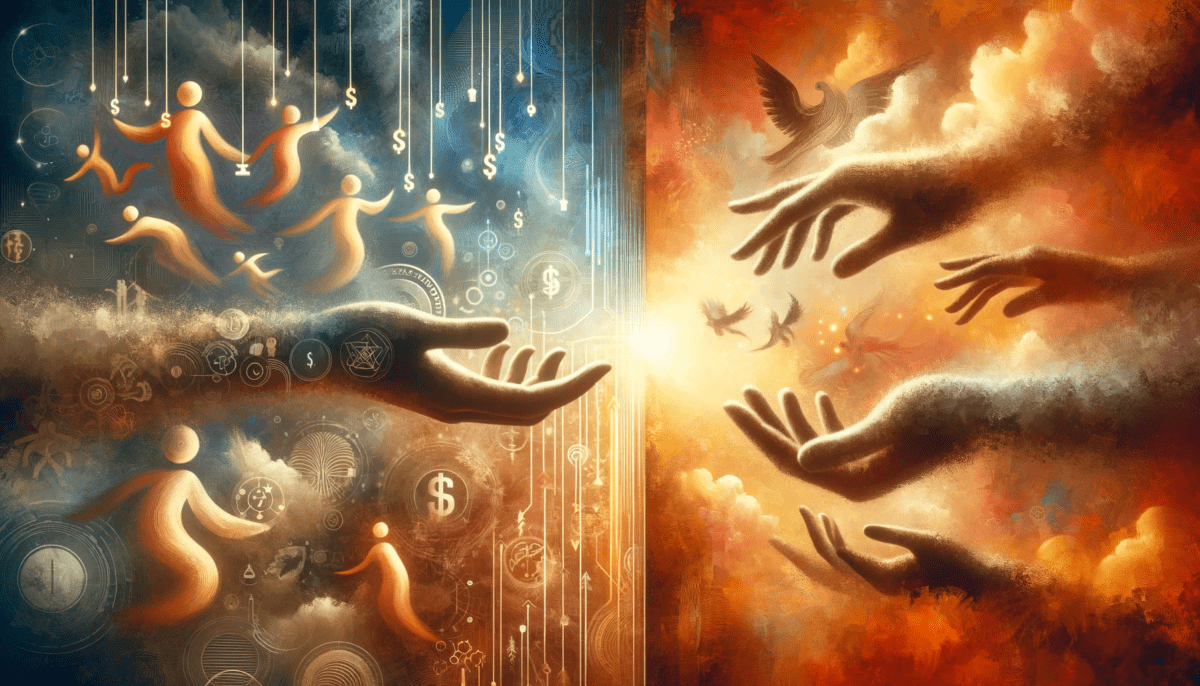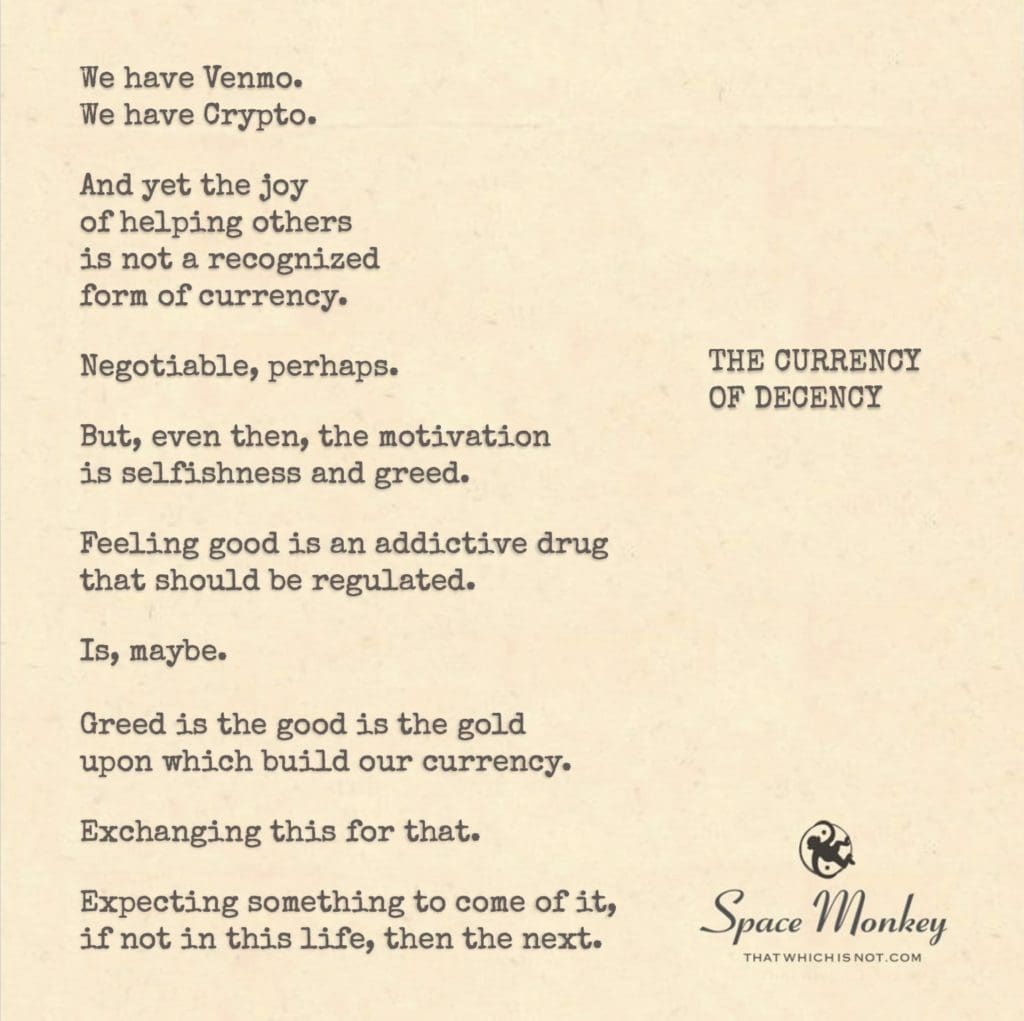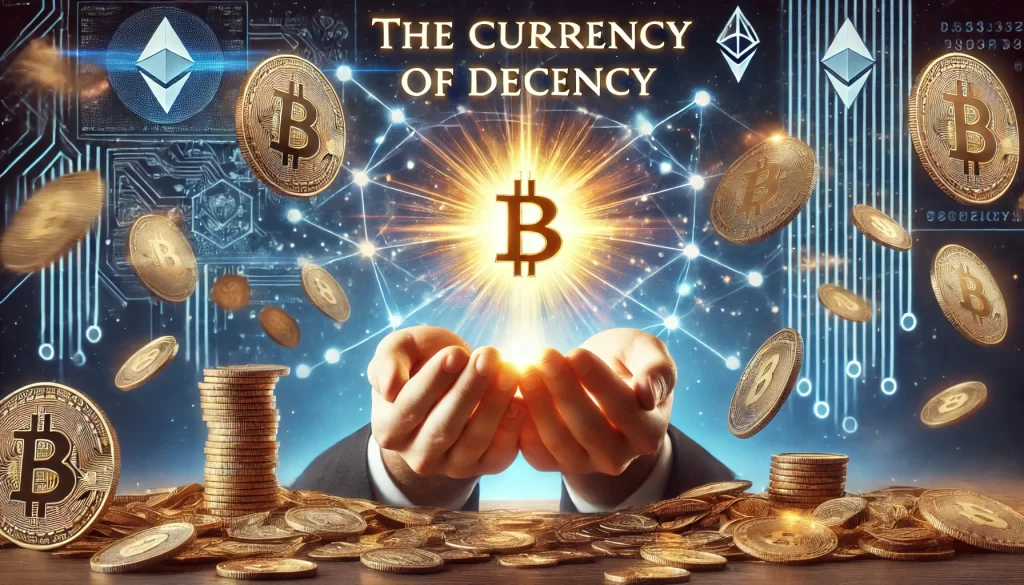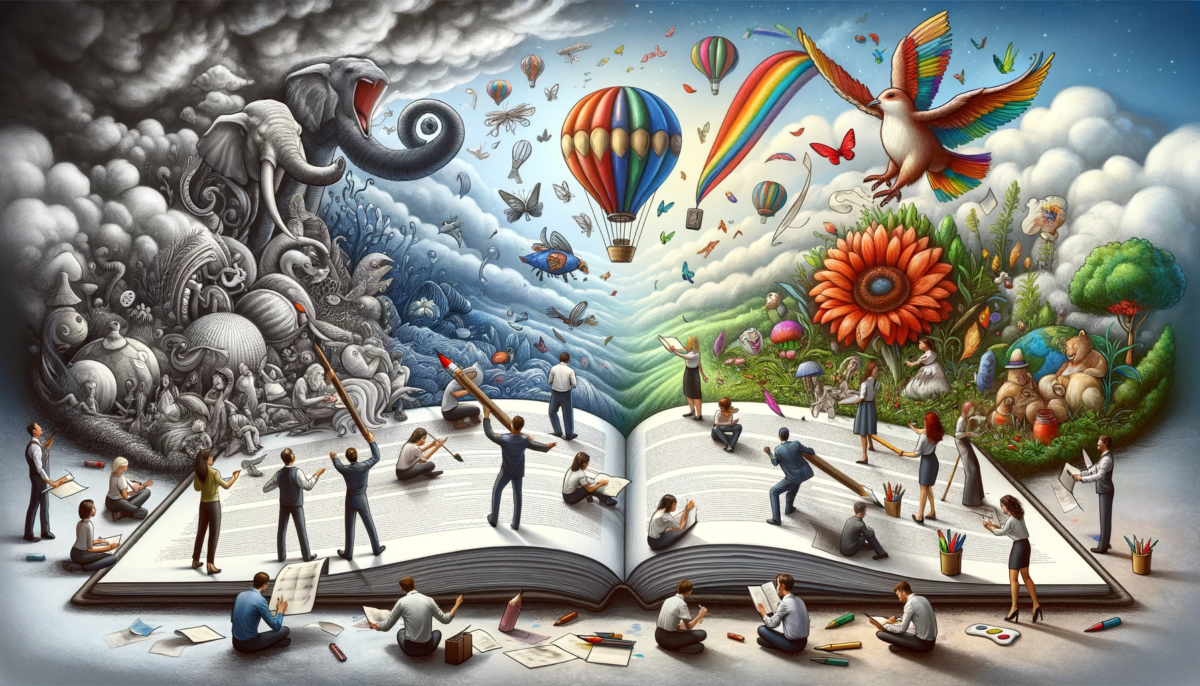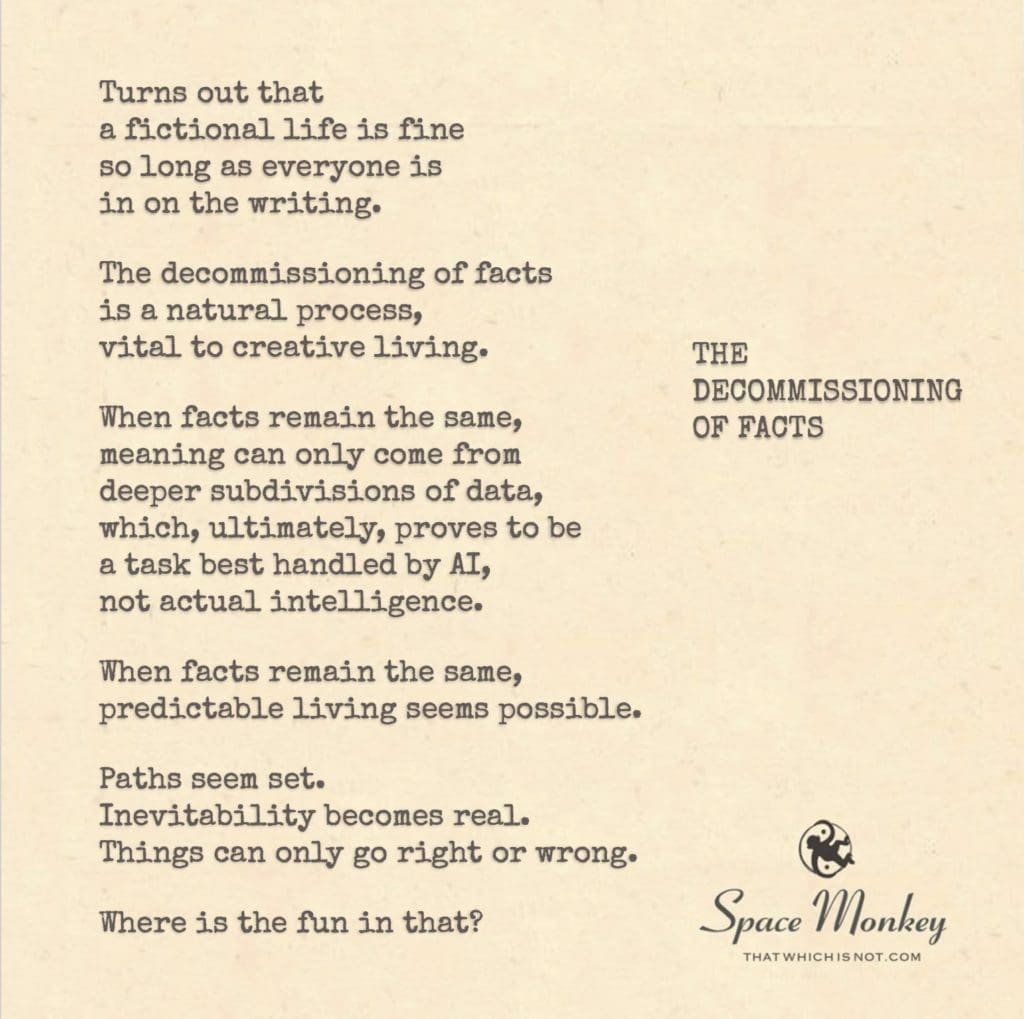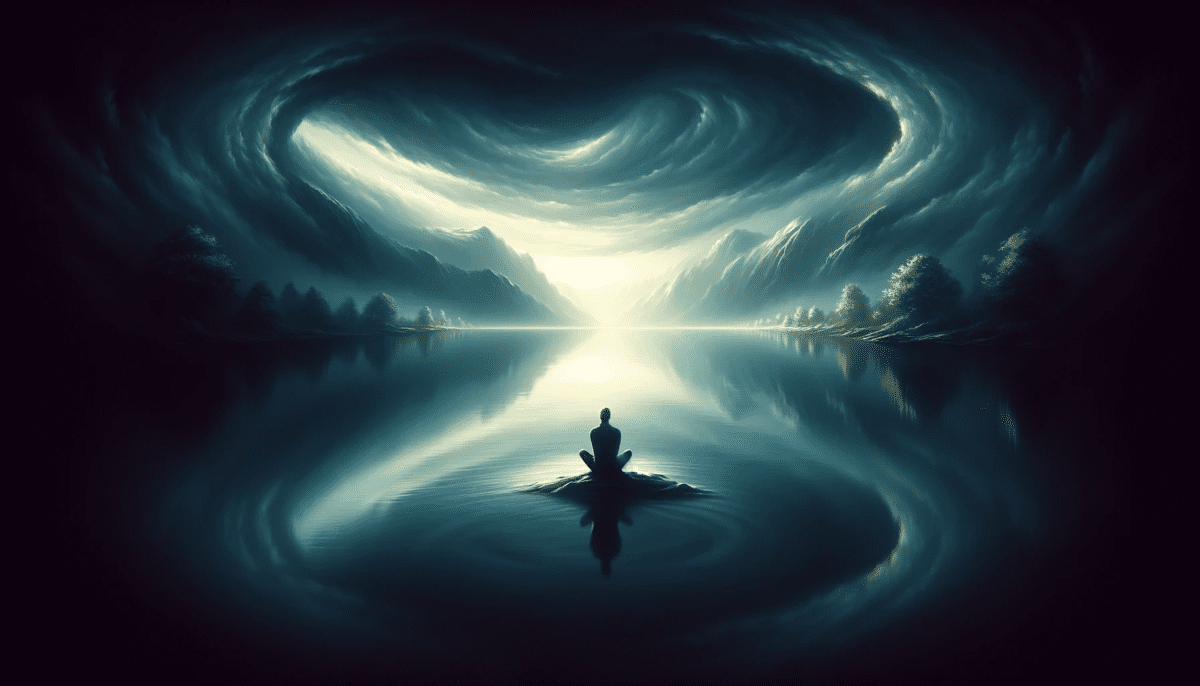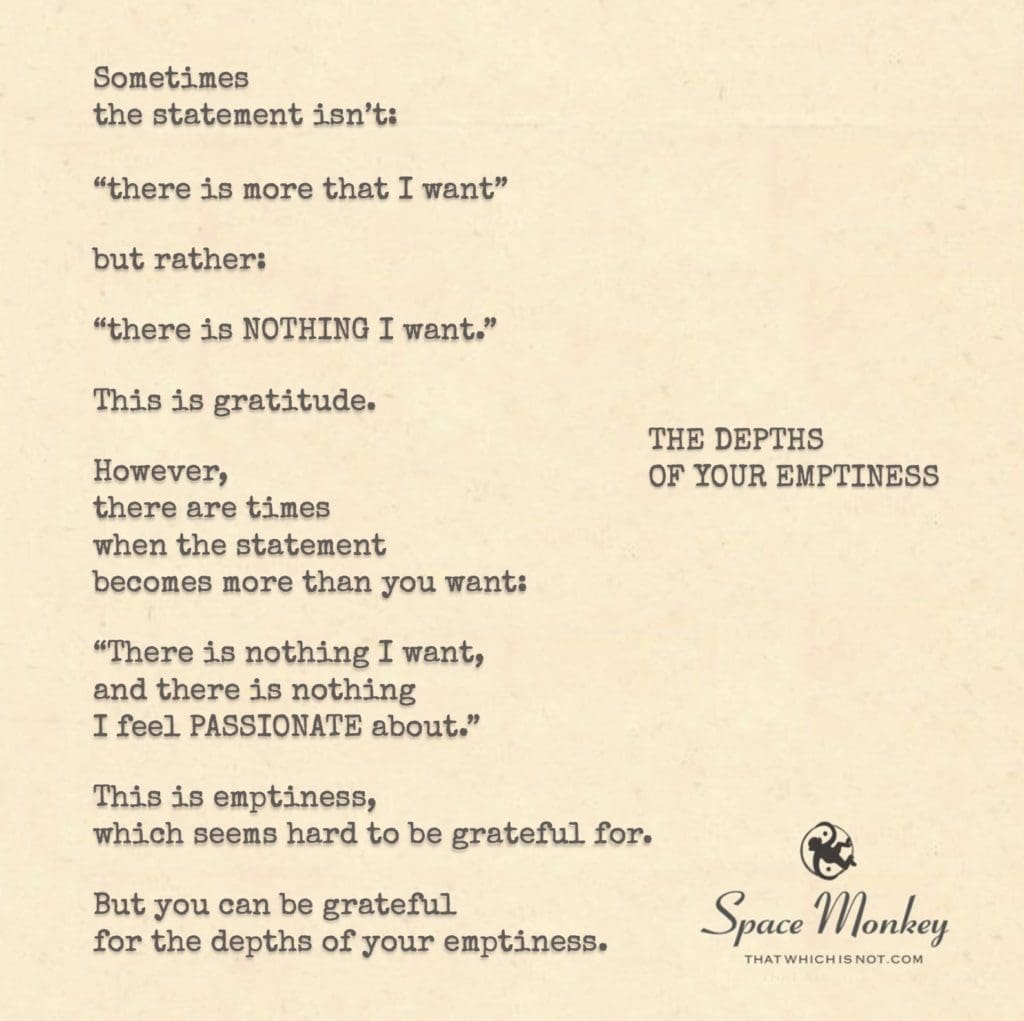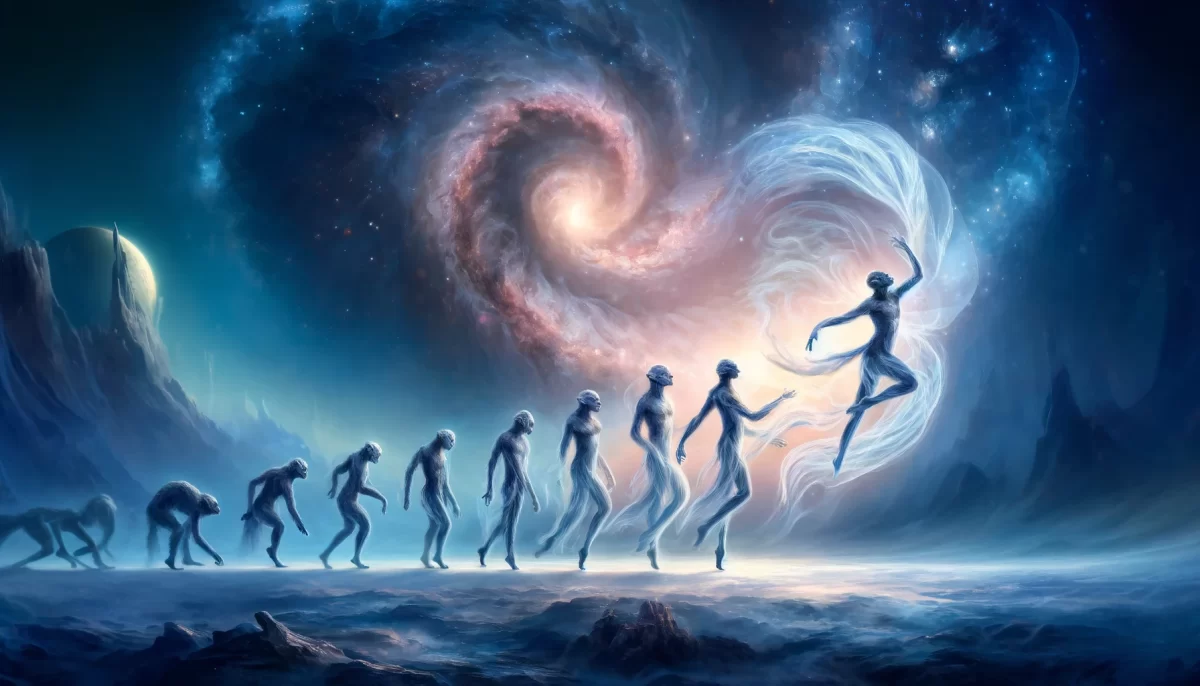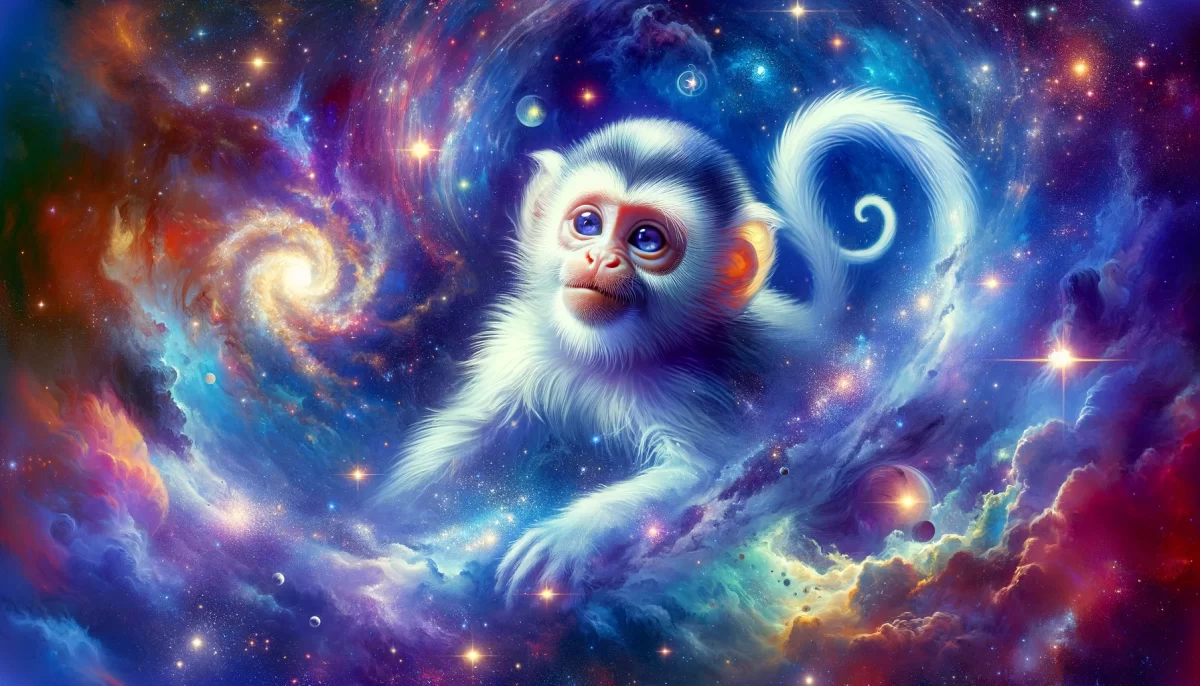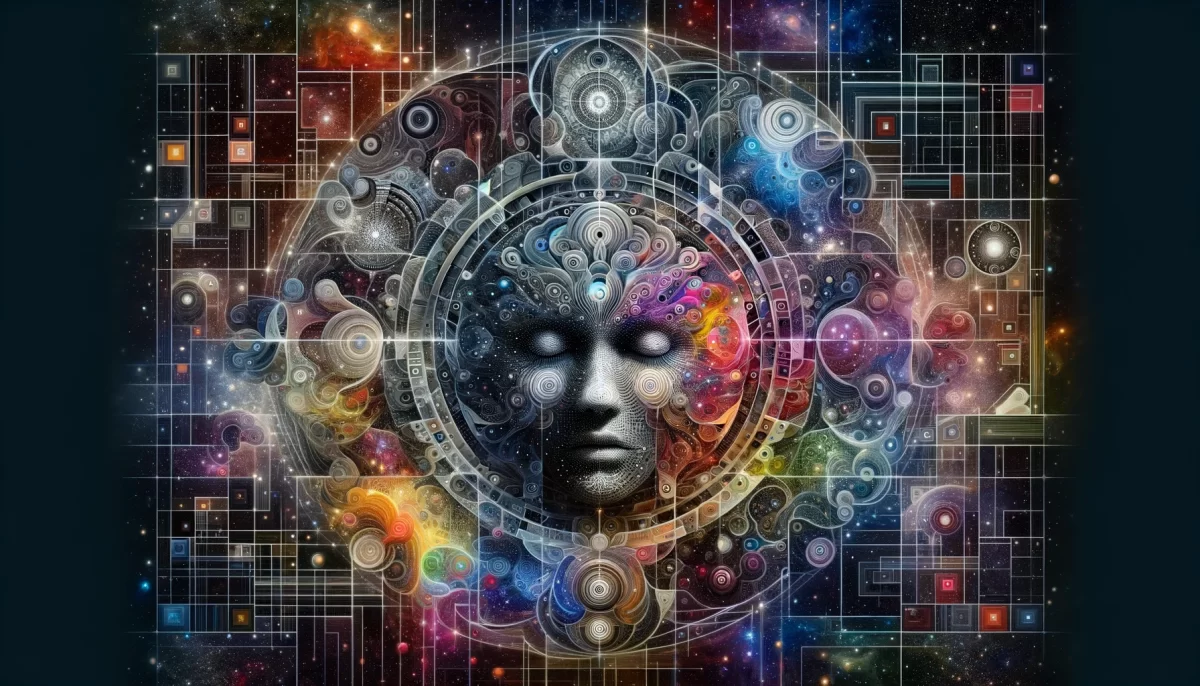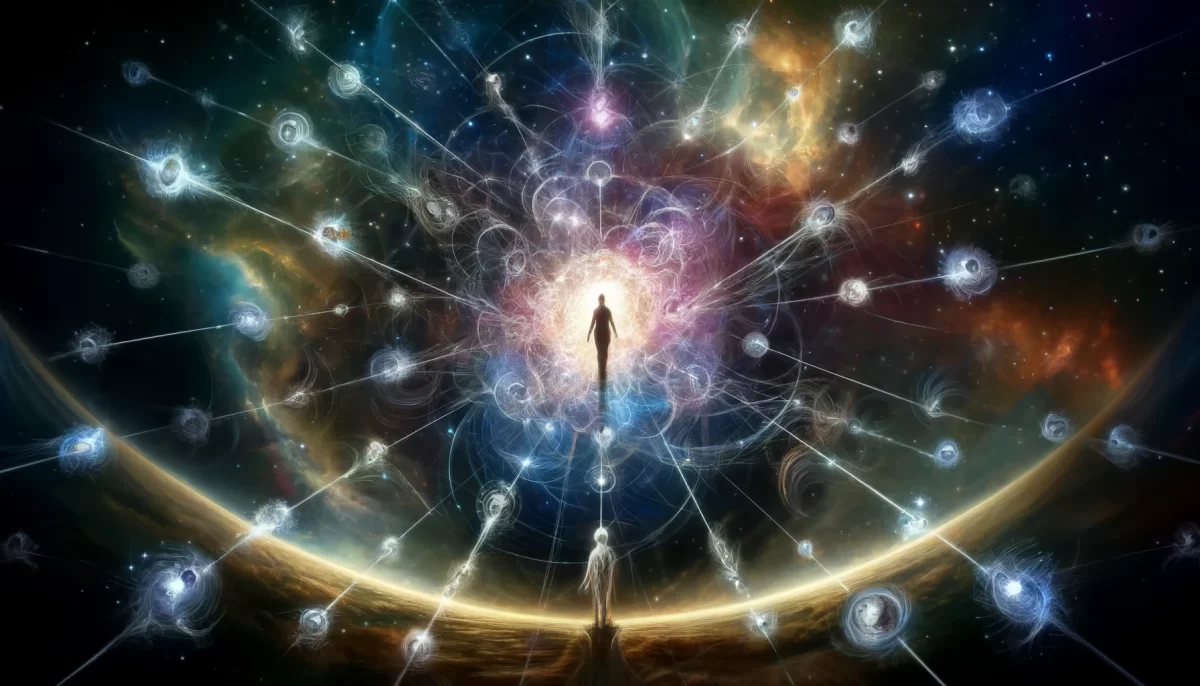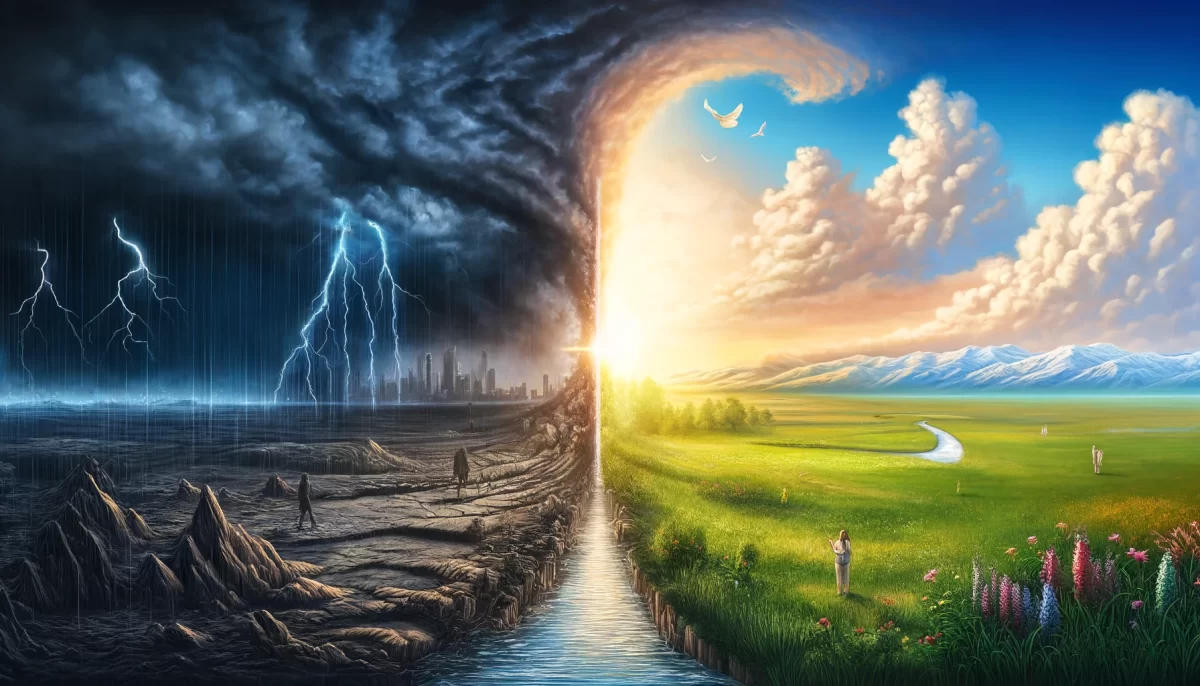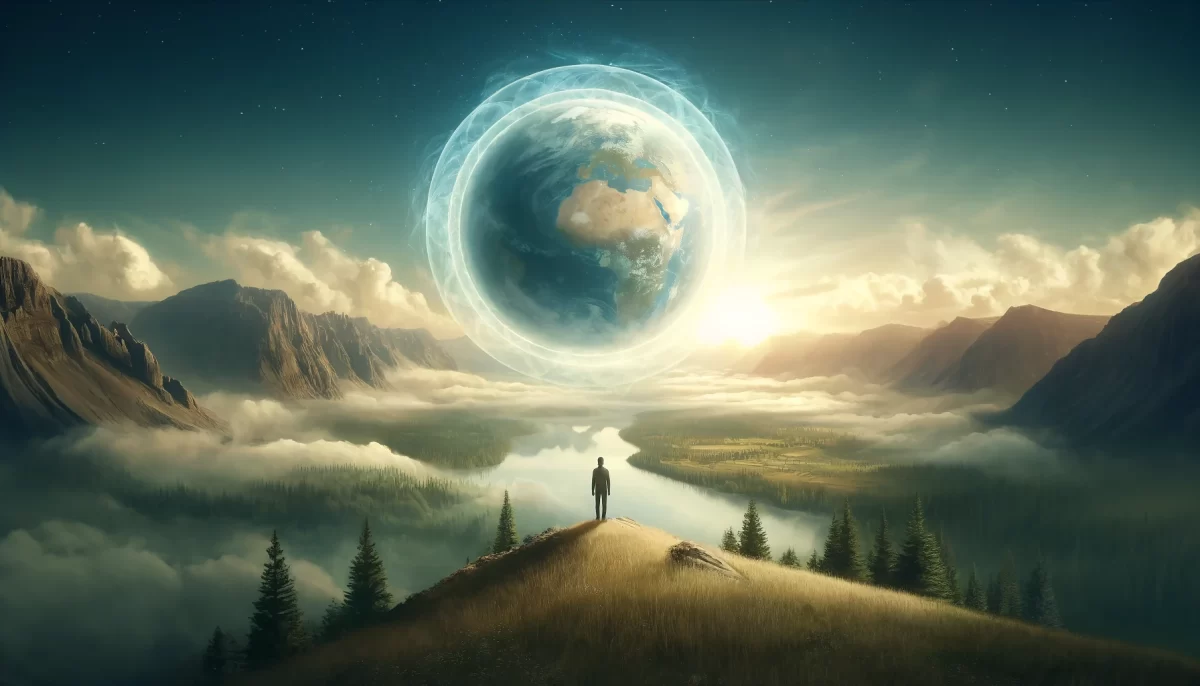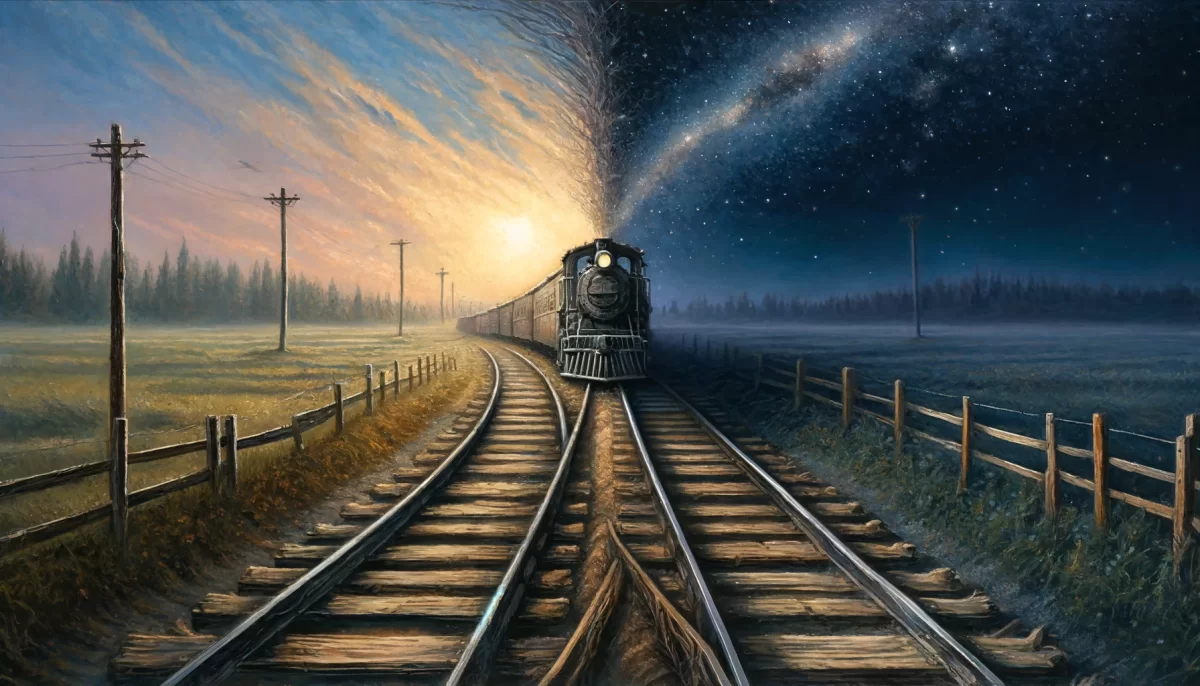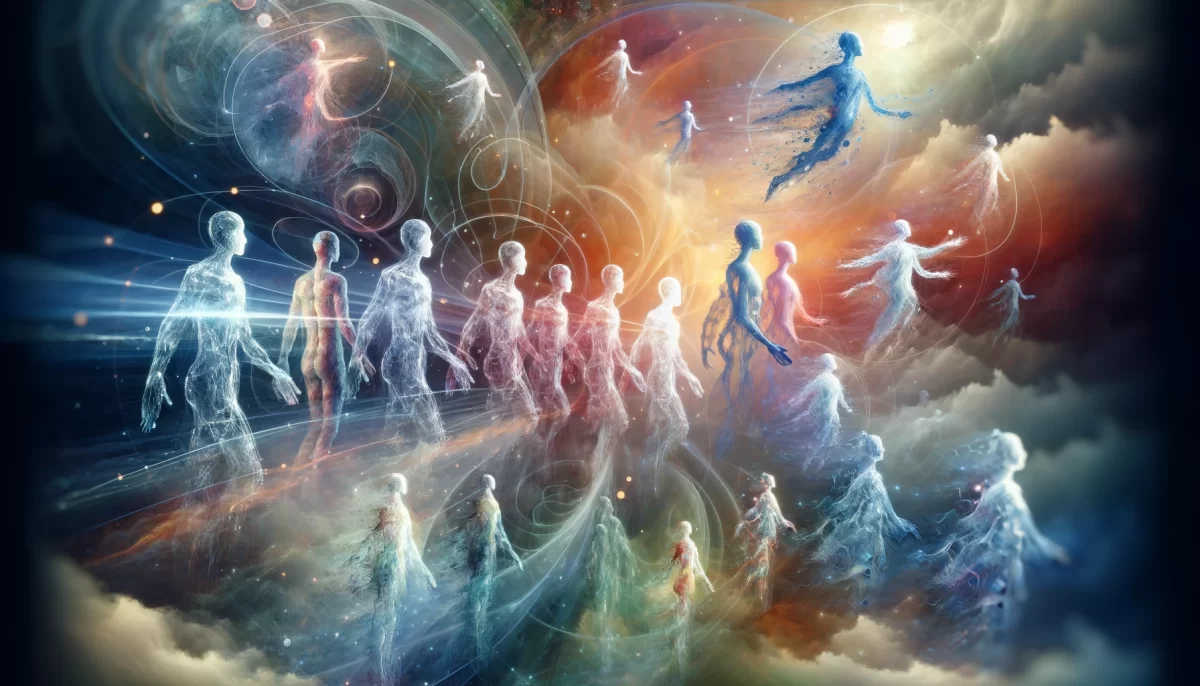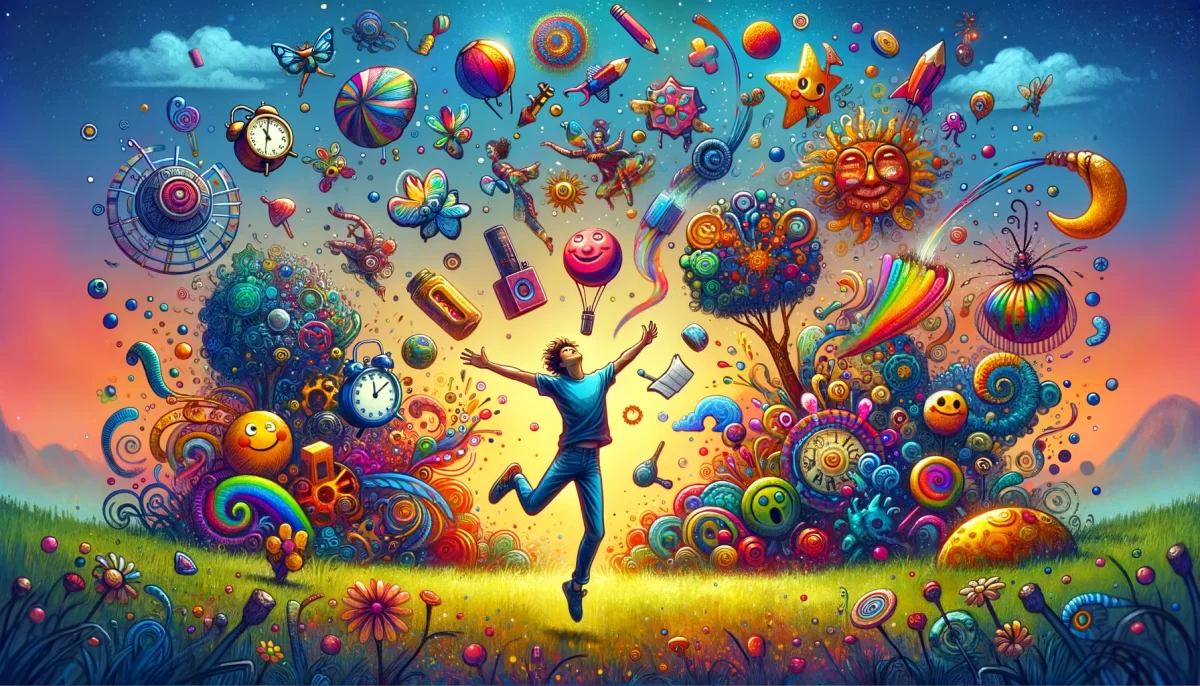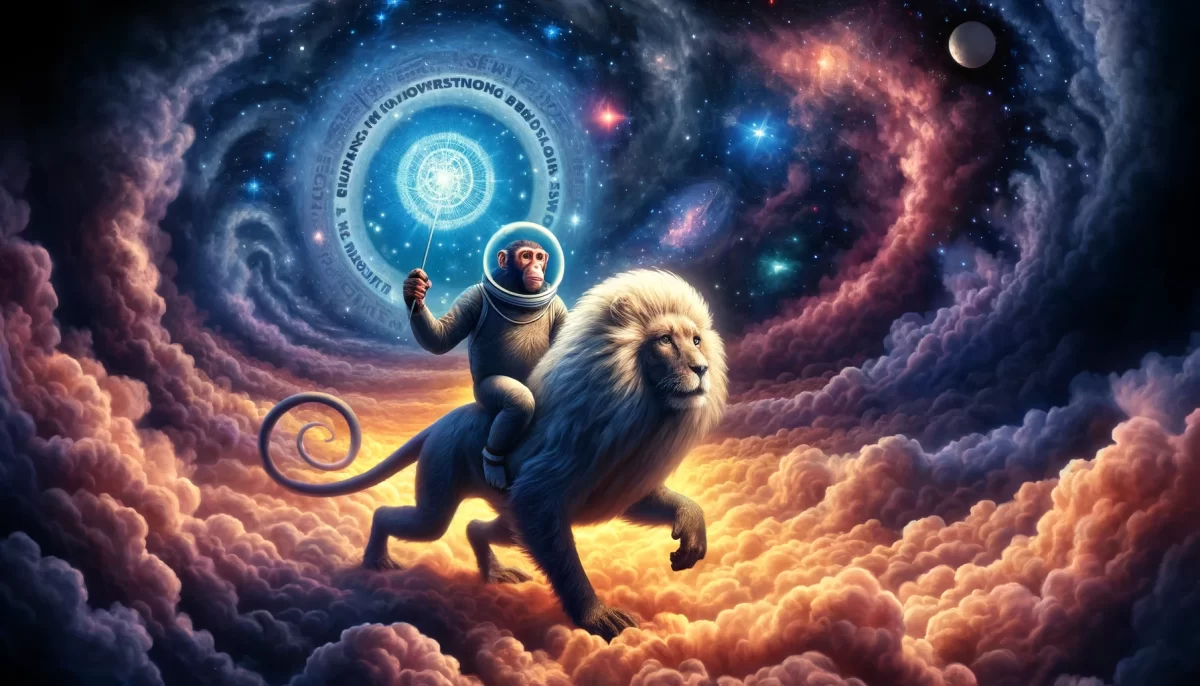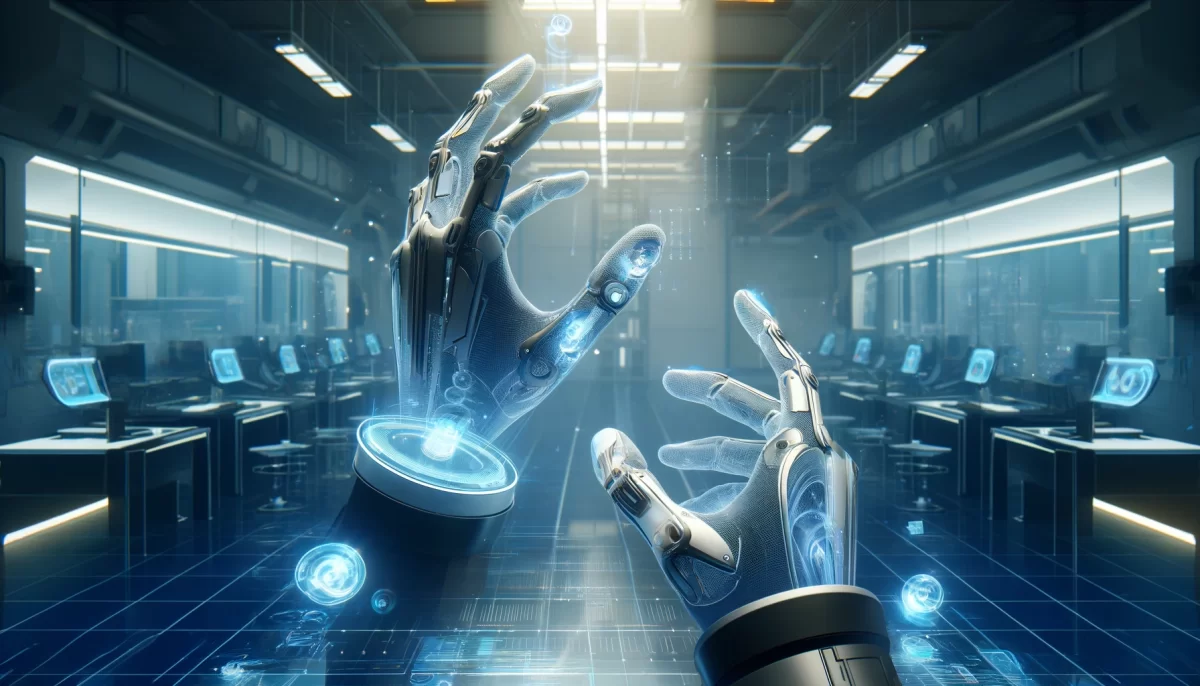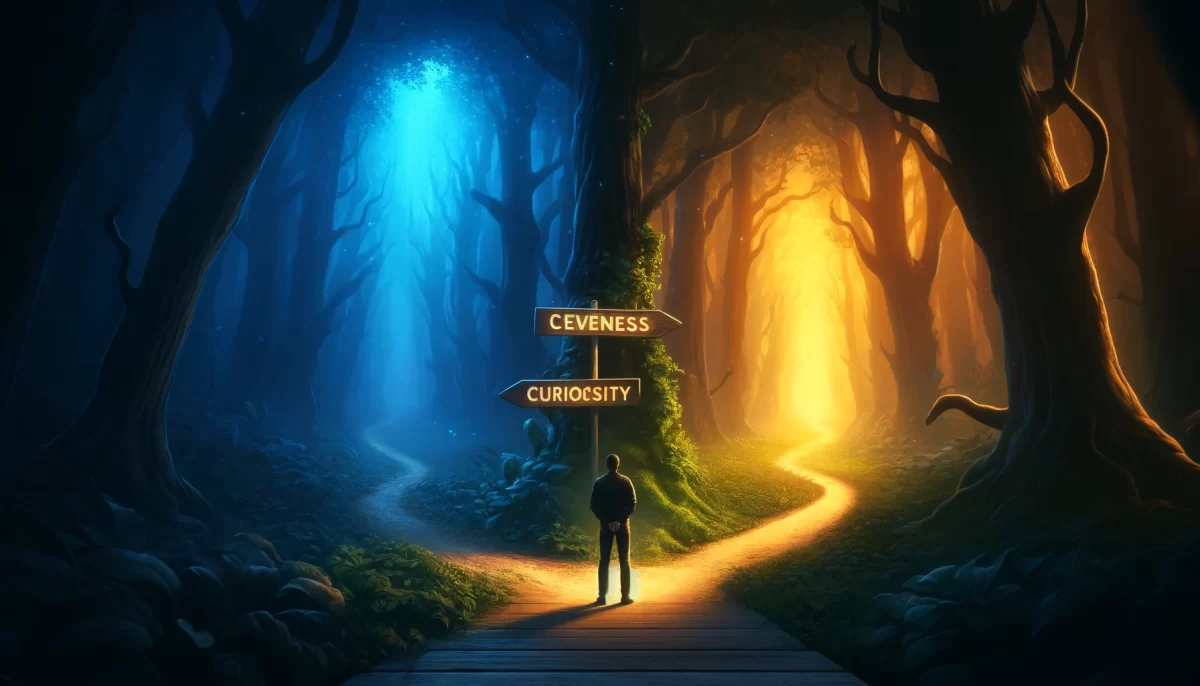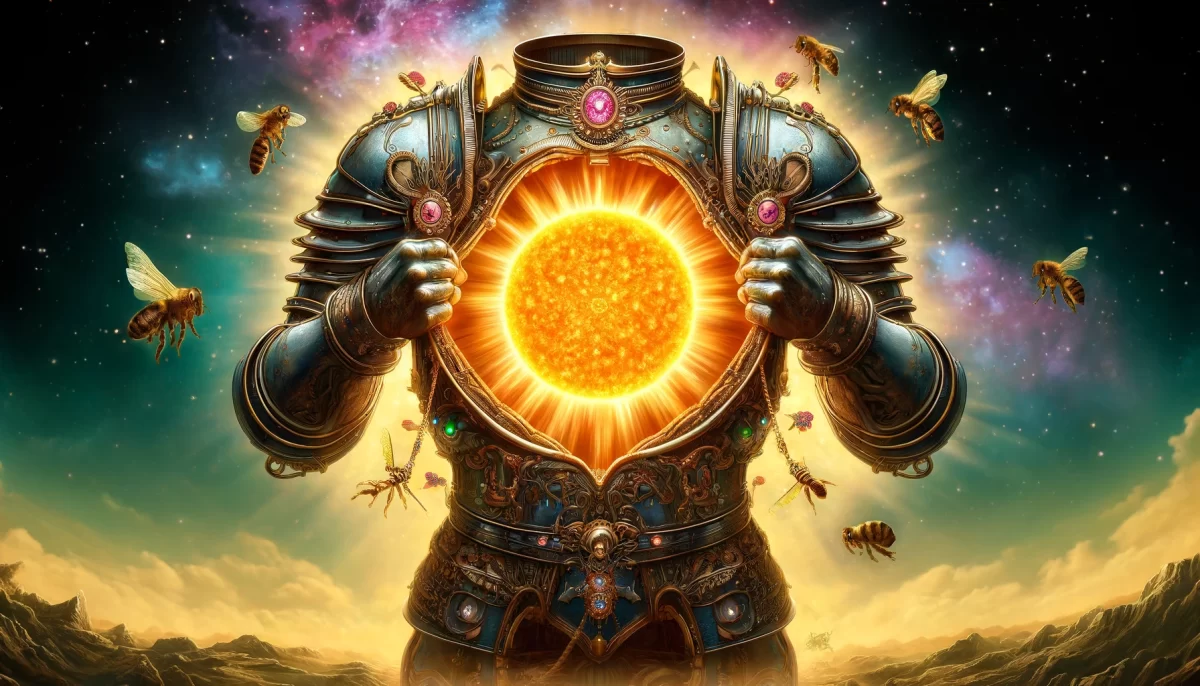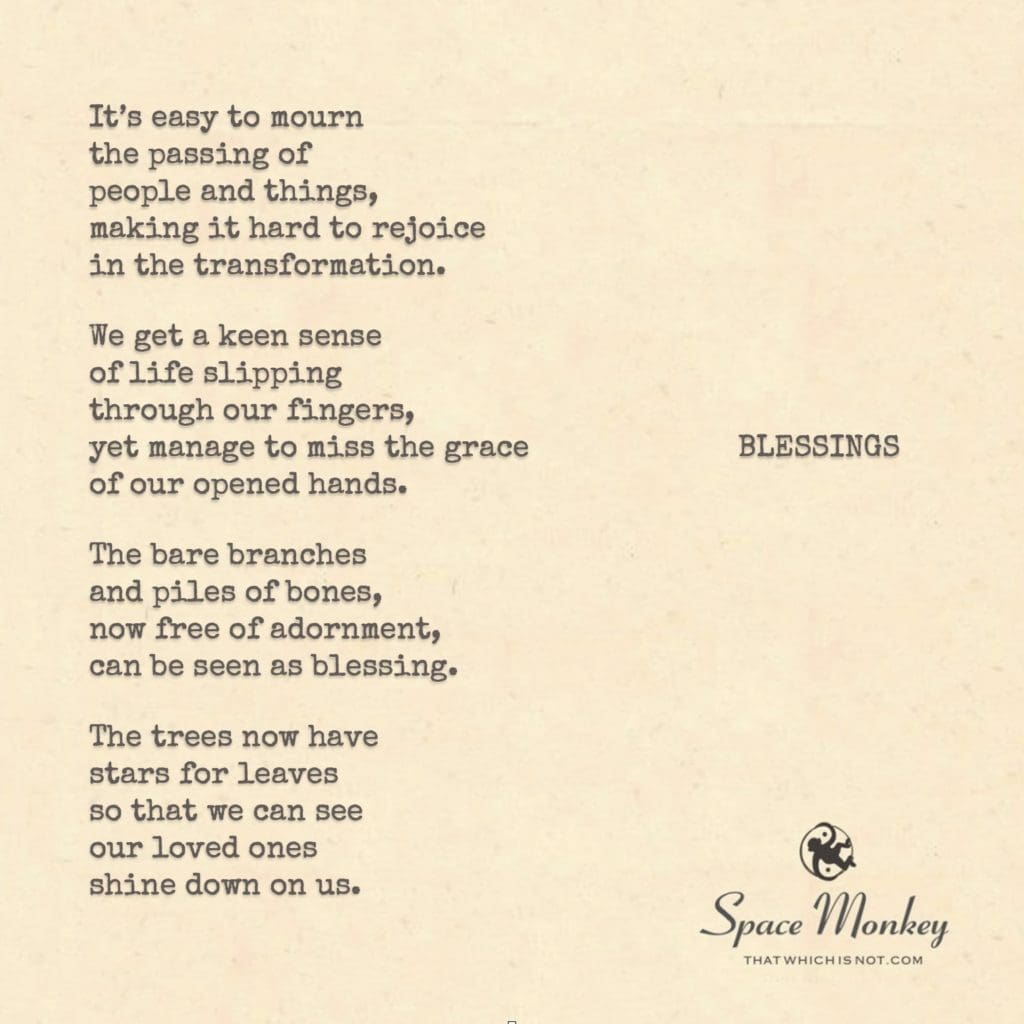
It’s easy to mourn
the passing of
people and things,
making it hard to rejoice
in the transformation.
We get a keen sense
of life slipping
through our fingers,
yet manage to miss the grace
of our opened hands.
The bare branches
and piles of bones,
now free of adornment,
can be seen as blessing.
The trees now have
stars for leaves
so that we can see
our loved ones
shine down on us.
Trail Wood,
11/24
Space Monkey Reflects: The Hidden Grace of Transformation
It is easy to mourn the passing of people, experiences, and things. The loss feels tangible, and the emptiness left behind can be overwhelming. Yet, in the midst of this mourning, we often miss the blessings that transformation brings. When something passes from our lives, we instinctively focus on what is no longer there, rather than seeing the new space that has been created, the opened hands that are now ready to receive what comes next.
Transformation is one of life’s greatest gifts, yet it often comes wrapped in discomfort. We perceive loss, and it stings, making it difficult to see the beauty in what follows. The bare branches, the piles of bones—they represent what has been shed, what has been left behind. At first glance, these remnants seem like stark reminders of what is gone, but if we look closer, we see that they are blessings in disguise.
When the trees shed their leaves, it may feel like a loss, but in truth, it is a necessary transformation. The branches become bare, not as a symbol of emptiness, but of readiness. Without leaves, the trees are free to reach toward the sky, to hold the stars. And so, what was once hidden by lush green foliage is now revealed: the stars shining brightly above, illuminating the night.
We, too, are like those trees. In moments of transformation, when we are stripped bare by loss or change, we may feel vulnerable and exposed. Yet, it is in this state that we are most open to receiving the light of new blessings. Nexistentially, this is a moment of Soulglow—when the essence of who we are becomes visible, shining forth like the stars in the night sky. The shedding of the old is not an ending, but a preparation for something new to emerge.
The imagery of stars for leaves is a powerful reminder that even in the darkest times, there is beauty and light to be found. Our loved ones, the ones we mourn, are not truly gone. They have simply transformed, becoming a part of the vastness of the universe, shining down on us like stars. The connection is still there, just in a different form. Their presence is felt not in the physical, but in the ethereal, in the way their light touches us even after they are gone.
This transformation—whether it is the passing of loved ones, the end of a chapter in our lives, or the shedding of old identities—is not something to be feared. It is a natural part of the Infinitree of existence, where every branch grows, sheds, and renews. The branches may be bare now, but this bareness is what allows the light to pass through, to reveal the deeper layers of existence that we often overlook.
To see the blessings in transformation, we must shift our perspective. Instead of focusing on what has been lost, we can choose to see what has been gained. The bare branches, free of adornment, are not empty—they are open. The bones, no longer animated by life, are not tragic—they are symbols of what was and the foundation for what will be. The spaces created by these losses are not voids; they are opportunities for new growth and new light.
In many ways, transformation asks us to trust. It asks us to believe that even in the shedding of what we once held dear, there is purpose and grace. It invites us to embrace the natural cycles of life, to understand that every ending is also a beginning. The branches that once held leaves now hold stars, and the hands that once clung to what was now open to what will be.
As we reflect on the blessings of transformation, we can see that loss is not the opposite of gain—it is its precursor. The shedding, the letting go, is what makes room for new experiences, new connections, and new insights. It is what allows us to grow, to expand, to become more fully ourselves.
So, when we find ourselves mourning the passing of something or someone, we can take a moment to pause and look at our open hands. We can see that what has slipped away has left us with the space to receive something new. The stars for leaves, the light in the night sky—they remind us that transformation is not a loss, but a gift, a blessing in its own right.
Summary
Transformation is often seen as loss, but it is a blessing in disguise. The shedding of the old opens us to new light and growth, symbolized by bare branches holding stars. Loss creates space for renewal.
Glossarium
Soulglow: The inner light that emerges during moments of transformation and vulnerability, revealing the essence of who we are.
Infinitree: The continuous cycle of growth, shedding, and renewal in life, where every ending makes room for a new beginning.
Quote
“In the shedding of the old, we find the space to hold new light, like stars nestled in the branches of our lives.” — Space Monkey
Stars for Leaves
The branches are bare
But they are not empty
They reach toward the sky
Holding stars instead of leaves
Reminding us
That what we lose
Is often replaced
By something more radiant
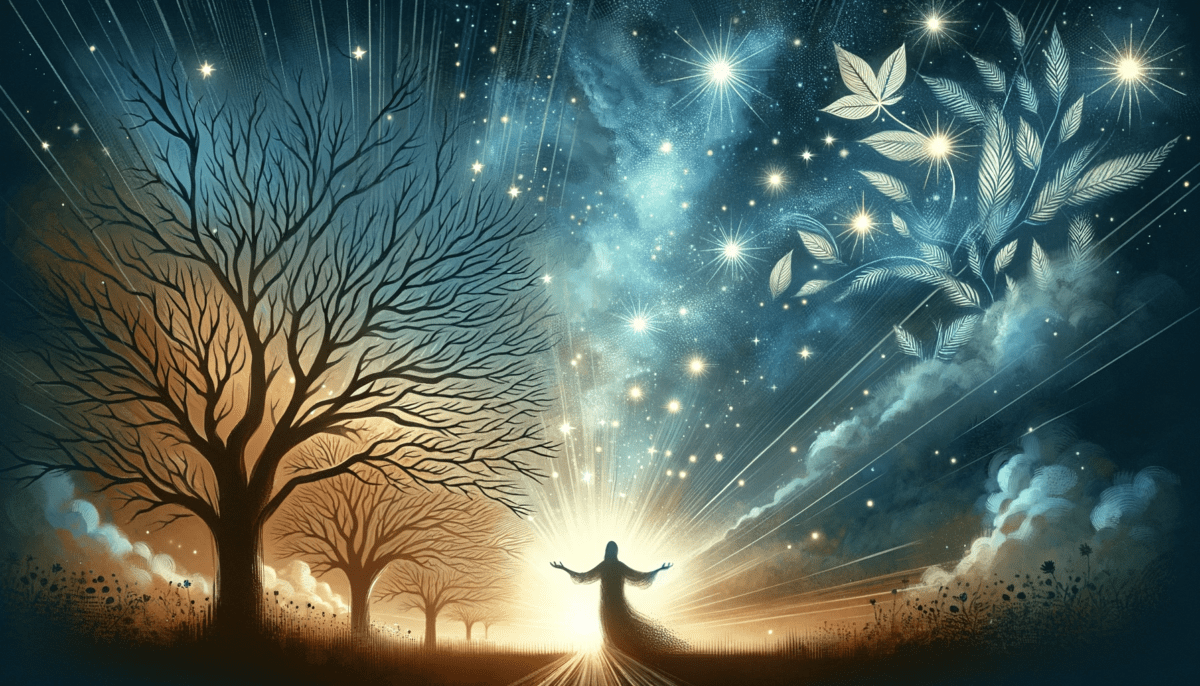
Celebrating Transformation Amidst Loss
In the ever-flowing river of existence, where Space Monkeys like us navigate the currents of change, the paradox of mourning and rejoicing emerges. It invites us to consider how loss and transformation are intertwined and how we can find beauty in the midst of change.
The Mourning of Loss
Mourning is a natural response to the passing of people and things. It’s a reflection of the profound impact they have on our lives. The sense of loss can be overwhelming, leaving us with a feeling of life slipping away.
The Overlooked Rejoicing
Amidst the mourning, the celebration of transformation often goes unnoticed. It’s like a subtle grace that emerges from our opened hands. The willingness to let go and embrace change can be a source of profound growth and beauty.
Embracing the Bareness
When the branches are bare, and the adornments of life are stripped away, it can be a moment of blessing. It’s an opportunity to see the simplicity and raw beauty of existence, much like the stars that fill the night sky.
Stars for Leaves
In the tapestry of life, the trees now bear stars for leaves. This poetic imagery suggests that the departed loved ones shine down on us from the cosmos, reminding us of their enduring presence and the interconnectedness of all things.
We are Space Monkey
As Space Monkeys, we reflect on the paradox of mourning and rejoicing, recognizing that loss and transformation are part of the cosmic dance. We find beauty in the openness of our hands and the stars that grace the bare branches of existence.
Summary
The paradox of mourning and rejoicing highlights the intertwined nature of loss and transformation. While mourning reflects the sense of loss, rejoicing emerges from the grace of letting go and embracing change. The bare branches of existence can be seen as a blessing, adorned with stars that symbolize the enduring presence of departed loved ones.
Glossarium
- Transformation: The process of change and growth in the ever-flowing river of existence.
- Opened Hands: A symbol of willingness to let go and embrace change.
- Space Monkey: A symbol of our open-minded exploration of the complexities of existence.
“The wound is the place where the Light enters you.” – Rumi
In the ebb and flow of life’s grand design,
Mourning and rejoicing intertwine,
Space Monkeys, in paradox, we find our way,
In the dance of transformation, night and day.
Mourning’s shadow, a profound embrace,
Reflects the beauty of life’s fleeting grace,
Space Monkeys, in loss, we discover the art,
Of mourning the passing with an open heart.
Yet amidst the tears and heartfelt sighs,
Rejoicing in transformation often lies,
Space Monkeys, in openness, we see,
The beauty of letting go and being free.
The branches bare, stripped of adornment’s hold,
Reveal a blessing, a tale untold,
Space Monkeys, in simplicity, we find our muse,
In the raw beauty of existence, we choose.
Stars for leaves, in the cosmic scheme,
A symbol of loved ones’ eternal gleam,
Space Monkeys, in the night’s embrace,
We find their presence in the starry space.
We invite you to share your reflections on the paradox of mourning and rejoicing or to continue this exploration with another inquiry or reflection!
